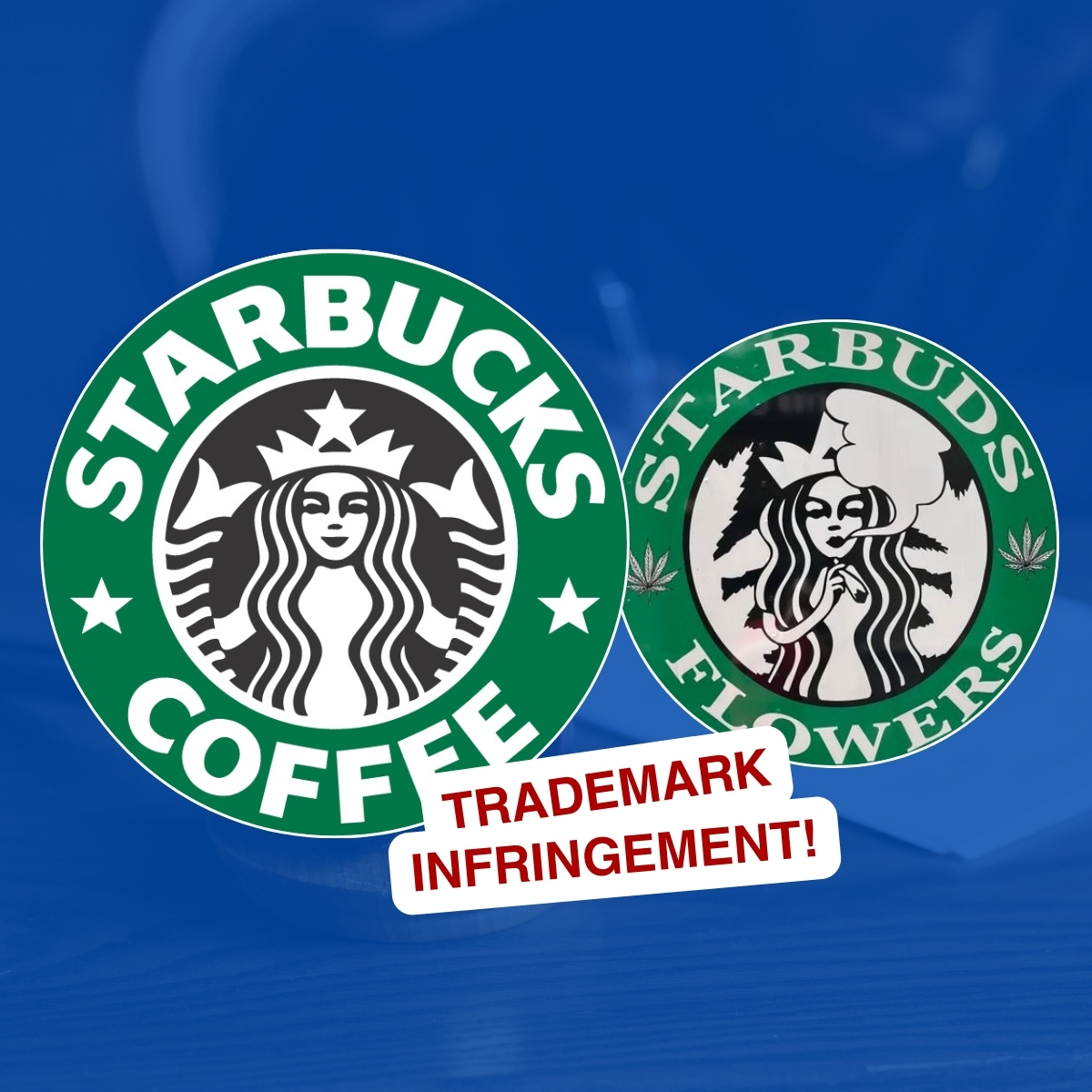
Protecting Intellectual Property: Analyzing the Starbucks v. Starbuds Case under Egyptian Law
Introduction
In today’s global marketplace, protecting intellectual property rights is crucial for maintaining brand integrity and consumer trust. While registering a trademark ensures its legal protection and provides the owner exclusive rights, the Egyptian legislator has established specific criteria for these protections. Legal battles over trademarks are common worldwide, and a recent case in the USA highlights the importance of revisiting these aspects and criteria.
Starbucks, a globally recognized coffeehouse chain, has faced numerous legal challenges in protecting its intellectual property rights (IPR). One such challenge is the recent case against Brandpat, LLC, operating under the name Starbuds Flowers (“Starbuds”), a marijuana retailer. Starbucks alleges that Starbuds’ name and logo are too similar to its trademark, potentially causing consumer confusion and irreparable harm to Starbucks’ goodwill and reputation.
Analysis of the Complaint under Egyptian Law:
By analyzing Starbucks’ complaint against Starbuds, we can classify the allegations into two main claims under Egyptian law: trademark infringement and unfair competition.
Trademark Infringement:
Trademark infringement can occur through counterfeiting or imitating a trademark. The Egyptian legislator stipulated that any person who counterfeits or imitates a trademark shall be punishable by imprisonment for a period of not less than two months and by a fine of not less than 5,000 pounds and not more than 20,000 pounds, or by either punishment.
Additionally, the Egyptian legislature provided additional protection for well-known trademarks, even if they were not registered in Egypt. This protection aims to prevent the registration of trademarks similar to well-known brands, which could mislead consumers into believing a connection exists between the owner of the well-known mark and the products of the other trademark. Furthermore, consumer confusion is a crucial legal criterion adopted by the Egyptian Administrative Court to identify similarities between trademarks and to cancel misleading trademarks that are identical or confusingly similar to a registered trademark or a well-known trademark.
Starbucks claims that Starbuds has infringed its trademark, as the logos of Starbucks and Starbuds are strikingly similar, both featuring a siren within a green circle. Starbucks argues that the global reputation of its brand could be negatively affected by Starbuds’ logo. Egyptian law and legal precedents ensure robust protection for trademarks, which could support Starbucks’ allegations.
Unfair Competition:
Egyptian Commercial Law imposes remedies on parties involved in unfair competition and aims to undo the damage caused. However, the law does not exclusively list unfair competition acts; instead, it provides examples and requires judges to analyze the facts of each case according to the principles of the Court of Cassation to clearly define unfair competition based on the merits of the case.
Starbucks alleges that Starbuds’ actions constitute unfair competition by affecting its well-established reputation, causing irreparable damage, and misleading consumers. Whereas, the Egyptian legislator protects commercial entities against unfair competition, ensuring that businesses operate within the bounds of fair and honest commercial practices.
Conclusion:
The Starbucks v. Starbuds case highlights the importance of protecting intellectual property and the necessity of registering trademarks globally. In an interconnected world, securing trademark protection in various jurisdictions is essential to prevent unauthorized use and potential infringement. This case serves as a pertinent example of the challenges faced by well-known brands in maintaining their unique identity and reputation.
Egyptian law provides a robust framework for addressing such disputes, emphasizing the need for attentiveness in protecting trademarks and maintaining fair competition. The legal provisions in Egypt ensure that trademarks, especially well-known ones, receive comprehensive protection against infringement and unfair competition. This framework not only helps safeguard the interests of trademark owners but also plays a crucial role in preventing consumer confusion and maintaining market integrity.
In the end, while the final decision will depend on the court’s interpretation of the facts and applicable laws, this case still serves as a reminder of the comprehensive protections available under Egyptian law and the proactive measures companies must take to safeguard their brand identity and reputation.
–Hazem ElKhatib, Aug.2024

Get in Touch
Let’s Protect Your Ideas
